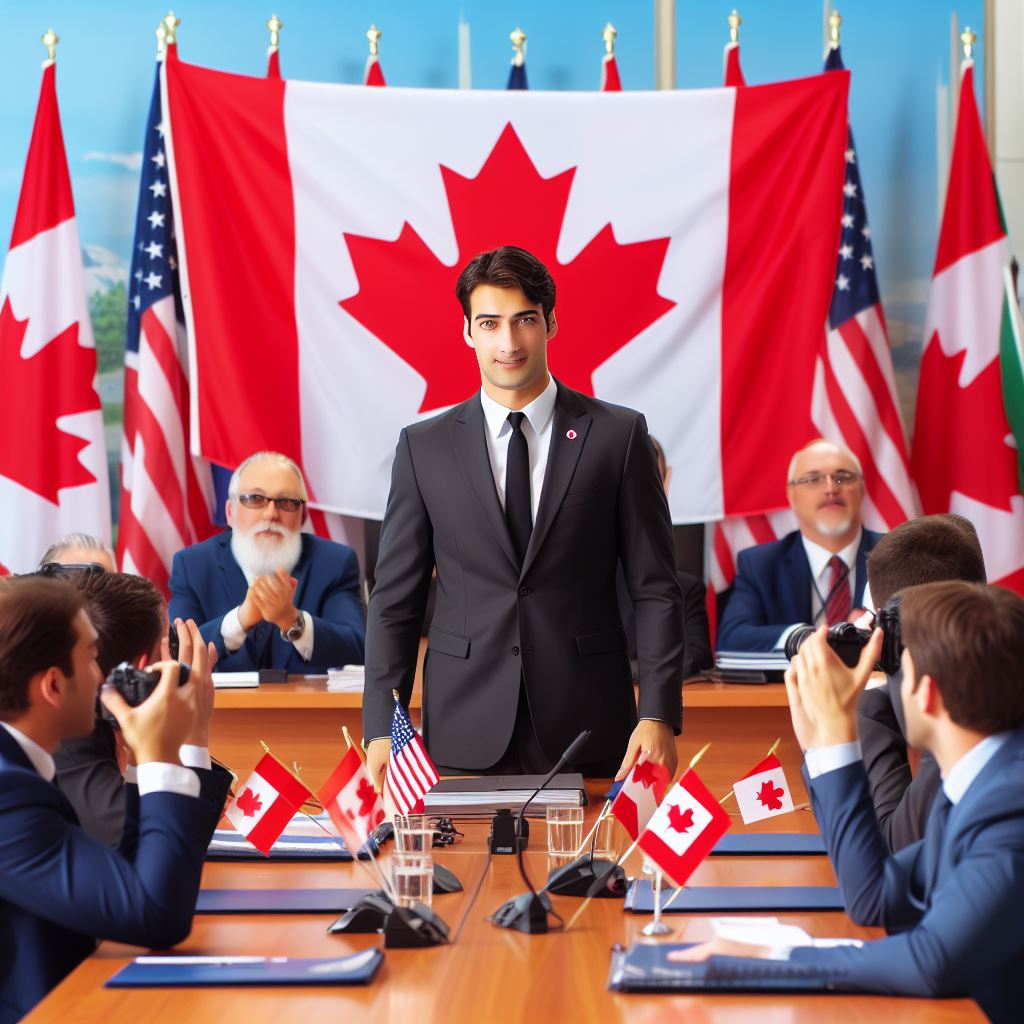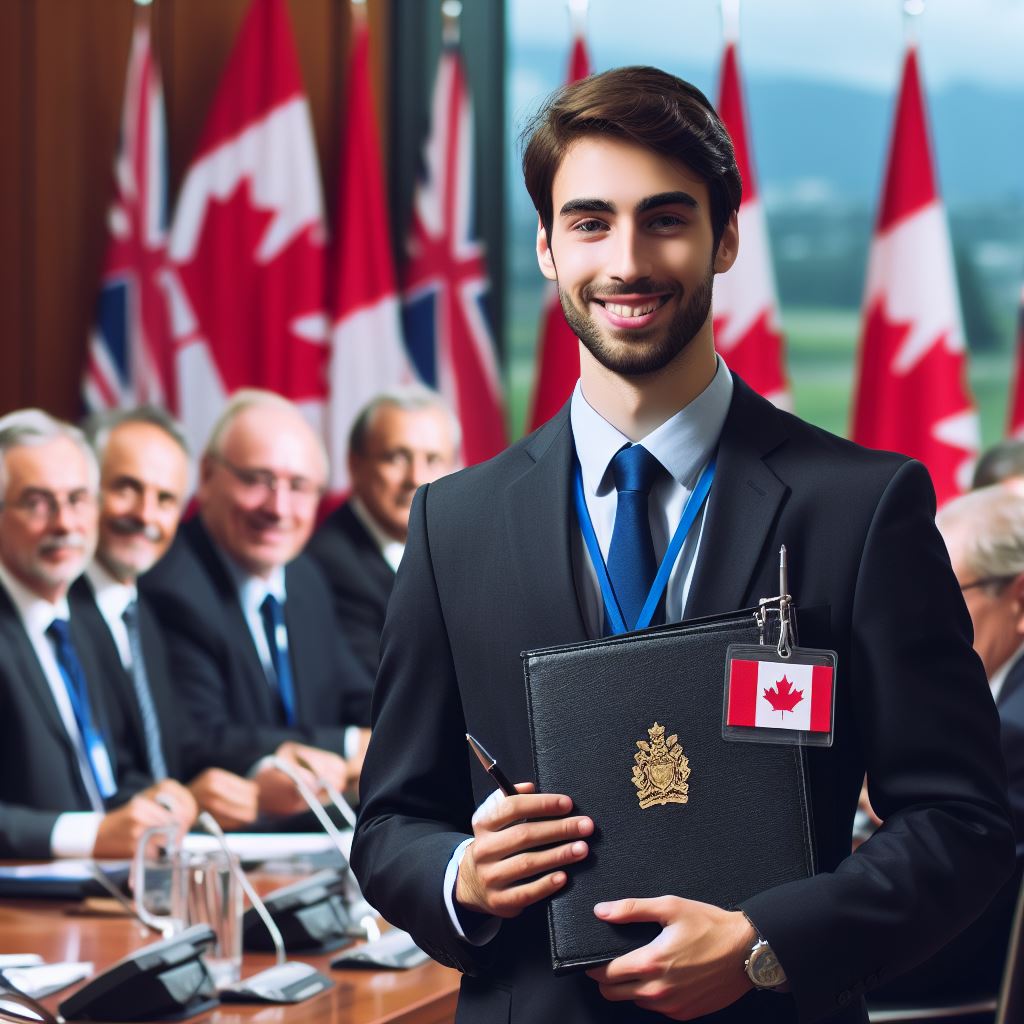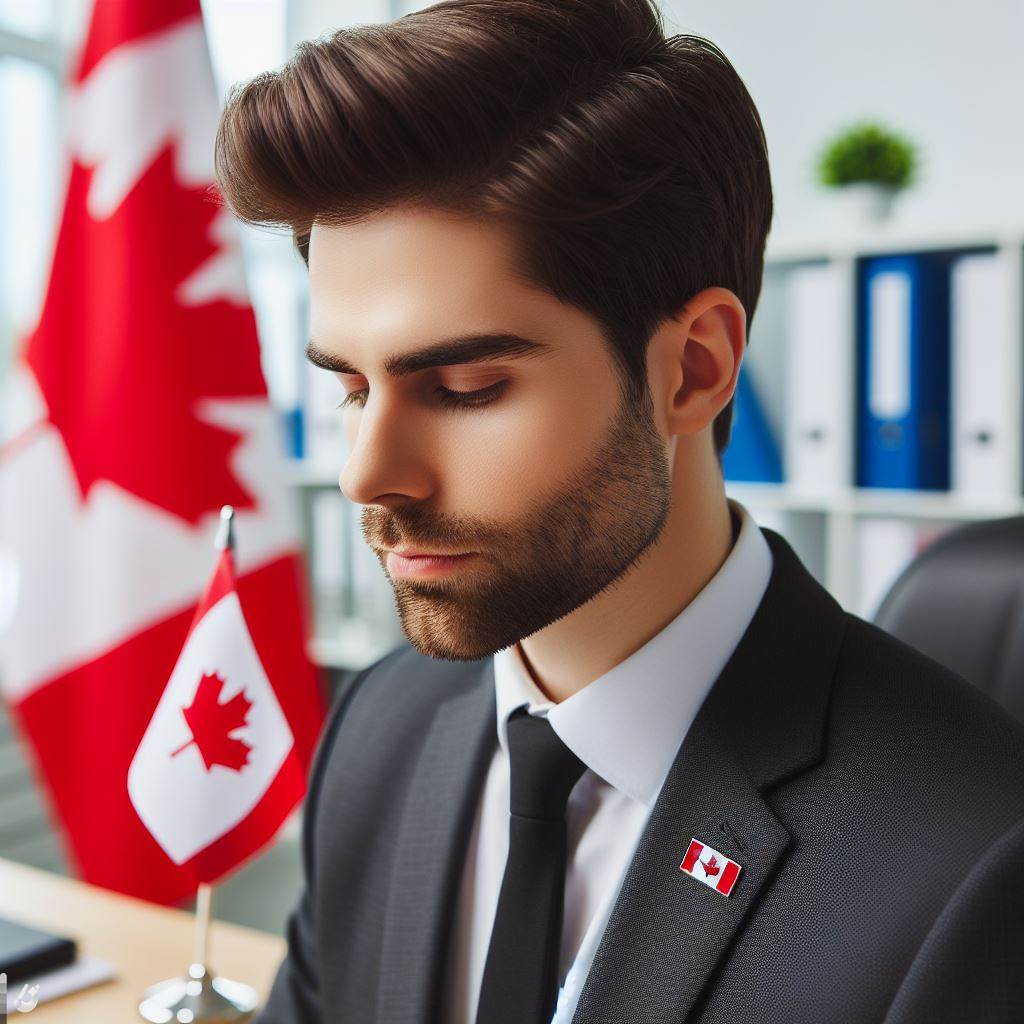Introduction
Modern diplomats play a crucial role in international relations, representing their countries and engaging in negotiations.
However, being a diplomat is not without its challenges. In this section, we will explore the top challenges faced by modern diplomats.
Modern diplomats encounter several challenges in their work, including political complexities, cultural differences, and the demand for effective communication.
- Political complexities: Diplomats often work in complex political environments, navigating power dynamics and competing interests.
- Cultural differences: Diplomats face the task of bridging cultural gaps and understanding diverse perspectives to promote mutual understanding.
- Effective communication: Diplomats must possess excellent communication skills to convey messages accurately and navigate sensitive diplomatic matters.
- Conflict resolution: Diplomats are often tasked with mediating conflicts and finding peaceful resolutions amidst escalating tensions.
- Public perception: Diplomats must carefully manage public perception, balancing their roles as representatives of their countries while also promoting positive relations.
- Economic issues: Diplomats play a role in promoting economic cooperation between nations, but this necessitates addressing complex trade and investment issues.
- Technological challenges: The digital age has brought new challenges for diplomats, including cybersecurity threats and the need to adapt to evolving communication platforms.
- Environmental concerns: Diplomats are increasingly involved in addressing global challenges such as climate change and sustainable development, requiring diplomatic efforts.
- Time management: Diplomats often juggle multiple tasks and engagements, requiring effective time management and prioritization skills.
- Personal sacrifices: Diplomats often spend significant time away from their families and home countries, leading to personal sacrifices and challenges.
Modern diplomats face a myriad of challenges in their role, encompassing political complexities, cultural barriers, communication demands, and more.
Despite these challenges, diplomats strive to foster diplomacy and promote peaceful relations in an ever-changing world.
Political Challenges
Diplomats today face a myriad of political challenges that constantly shape the landscape of international relations.
These challenges have a significant impact on the practice of diplomacy and the ability of diplomats to effectively carry out their roles.
Constantly Changing Political Landscape
One of the primary challenges faced by modern diplomats is the constantly evolving political landscape.
Political dynamics and power structures are in a constant state of flux, making it difficult for diplomats to navigate and understand the complexities of the global arena.
With the rise of globalization and technological advances, the world has become more interconnected, leading to an increase in the number of actors and issues that diplomats need to address.
From geopolitical shifts to emerging threats, diplomats must keep abreast of the latest developments to effectively represent their home country’s interests.
Navigating Political Dynamics and Maintaining Relationships
Diplomacy relies heavily on building and maintaining relationships with various governments, a task made increasingly challenging due to the evolving political dynamics.
Diplomats must carefully navigate these dynamics to ensure the success of their negotiations and promote cooperation between nations.
Conflicting ideologies, historical grievances, and power struggles are just some of the obstacles diplomats encounter while trying to foster diplomatic relations.
They must carefully balance the interests of their home country while also considering the political sensitivities and cultural nuances of the host country.
Representing Home Country’s Interests in a Foreign Political Climate
The challenge of representing their home country’s interests while taking into account the political climate of the host country adds another layer of complexity to a diplomat’s role.
Diplomats must navigate this delicate balance to achieve their country’s objectives.
The host country’s political climate, which includes domestic policies, public opinion, and current events, can significantly impact diplomatic engagements.
Diplomats must develop the skills to adapt to these circumstances, promoting dialogue and negotiation while respecting the sovereignty and national interests of all parties involved.
Furthermore, political challenges can arise when diplomats encounter contrasting political systems or ideologies.
Diplomats must find ways to engage with governments that may have differing values or policies, seeking common ground and areas for collaboration.
In short, Modern diplomats face numerous political challenges in the ever-changing landscape of international relations.
Navigating political dynamics, fostering relationships, and representing their home country’s interests require diplomats to possess a deep understanding of the political climates they operate in and the ability to adapt to different political systems.
Despite these challenges, diplomacy remains a crucial tool for resolving conflicts, promoting global cooperation, and shaping the future of our interconnected world.
Read: The Role of Diplomats in Global Politics
Unlock Your Career Potential
Visualize a clear path to success with our tailored Career Consulting service. Personalized insights in just 1-3 days.
Get StartedDiplomatic Communication
The importance of effective communication in diplomacy
Effective communication plays a crucial role in diplomacy, enabling diplomats to build trust and foster cooperation between nations.
Diplomats are responsible for conveying messages accurately and diplomatically, ensuring that their intentions are understood by all parties involved.
The challenges diplomats face in dealing with language barriers and cultural differences
One of the key challenges diplomats face in communication is overcoming language barriers.
Diplomatic exchanges often involve multiple languages, and it is essential for diplomats to be fluent in different languages or have access to skilled translators.
Misinterpretation can lead to misunderstandings or even diplomatic crises, highlighting the importance of linguistic proficiency.
Cultural differences also pose significant challenges in diplomatic communication.
Diplomats must be sensitive to cultural norms, practices, and customs of the countries they are working with.
A lack of cultural understanding may lead to unintentional offenses or miscommunication, hindering the progress of diplomatic negotiations.
The need for diplomats to be skilled in negotiation and conflict resolution
Moreover, diplomats need to possess excellent negotiation and conflict resolution skills.
Negotiations are a fundamental aspect of diplomacy, and diplomats must be adept at finding common ground and reaching agreements.
They must be able to navigate complex power dynamics, handle conflicting interests, and strike compromises that benefit all parties involved.
Conflicts in diplomatic negotiations often arise due to differences in goals, values, and priorities.
Diplomats must possess the ability to listen actively, to articulate their positions clearly, and to find creative solutions that reconcile these differences.
They must also have the skills to defuse tense situations, manage disagreements, and promote peaceful resolutions.
In addition to face-to-face diplomacy, modern diplomats must master various communication tools and techniques.
The advent of technology has opened new avenues for diplomacy, and diplomats must utilize these tools effectively.
They need to be proficient in digital communication, social media platforms, and virtual diplomacy, all while maintaining the nuances of traditional diplomatic practices.
Diplomats must also be adaptive and flexible in their communication style.
Different cultures and political systems require different approaches, and diplomats should be able to adapt their communication style accordingly.
They must strike a delicate balance between being assertive and respectful, assertive in advocating for their country’s interests while maintaining diplomatic decorum.
Furthermore, maintaining open lines of communication is vital for diplomats.
Establishing diplomatic channels helps ensure that dialogues remain open between countries, even during times of tension.
By fostering communication, diplomats can mitigate conflicts and build trust, laying the foundation for diplomatic resolutions and cooperation.
In fact, effective communication lies at the heart of successful diplomacy.
Diplomats face challenges in dealing with language barriers and cultural differences, necessitating linguistic proficiency and cultural sensitivity.
They must also possess negotiation and conflict resolution skills to navigate complex diplomatic negotiations.
Modern diplomats must adapt to new communication tools and techniques while maintaining traditional diplomatic practices.
By overcoming these challenges, diplomats can forge strong relationships and promote stability and peace on the global stage.
Read: How to Become a Diplomat in Canada: A Guide
Economic Challenges Faced by Modern Diplomats
Economic challenges play a critical role in shaping diplomatic relationships.
Modern diplomats encounter numerous difficulties in promoting trade and investment opportunities, while also considering economic disparities between nations.
Identifying Economic Challenges
Modern diplomats face several economic challenges in their diplomatic endeavors. These challenges include:
- Global economic instability: Diplomats must navigate through uncertain economic conditions globally, which can impact trade relations and investment opportunities.
- Protectionism and trade barriers: The rise of protectionist policies and trade barriers hinders diplomatic efforts to promote free and fair trade between nations.
- Economic sanctions: Diplomats must manage the implications of economic sanctions imposed on certain countries, affecting bilateral trade and investments.
- Economic disparities: The vast differences in economic development and wealth distribution between nations create challenges in finding mutually beneficial economic opportunities.
- Market access restrictions: Diplomats face difficulties in encouraging countries to open up markets and remove barriers, limiting the potential for trade and investment.
The Role of Economic Issues in Diplomatic Relationships
Economic issues significantly influence diplomatic relationships.
The interdependence of countries’ economies necessitates diplomats to address economic challenges effectively.
Some key roles played by economic issues include:
- Enhancing cooperation and partnership: Economic ties foster closer relationships between nations, promoting cooperation in various areas.
- Resolving conflicts and disputes: Economic diplomacy can serve as a platform to resolve disputes and conflicts between nations, reducing tensions.
- Promoting diplomatic objectives: Economic issues can be strategically leveraged to achieve diplomatic goals and strengthen diplomatic ties.
- Building trust and confidence: Successful economic collaborations build trust and confidence between nations, facilitating smoother diplomatic negotiations.
- Addressing global challenges: Economic issues often require collective international efforts, encouraging diplomats to work together to address global challenges, such as climate change and poverty.
Difficulties Diplomats Encounter in Promoting Trade and Investment Opportunities
Diplomats face various difficulties when promoting trade and investment opportunities, while also considering economic disparities between nations. These difficulties include:
- Competing national interests: Diplomats must balance national interests while promoting international trade, sometimes leading to complex negotiations.
- Language and cultural barriers: Understanding diverse cultures, languages, and business practices is critical for effective communication and negotiation.
- Negotiating complex trade agreements: Diplomats often engage in lengthy and intricate negotiations to establish trade agreements that benefit both sides.
- Addressing public opinion: Diplomats must manage public sentiments and expectations about trade and investment, considering the potential impact on domestic industries and employment.
- Ensuring fair trade practices: Diplomats work to ensure fair trade practices, including intellectual property rights protection and preventing forced labor.
In general, economic challenges play a vital role in shaping modern diplomatic relationships.
Diplomats face various obstacles in promoting trade and investment opportunities while considering economic disparities between nations.
Overcoming these challenges requires strategic negotiation, cooperation, and understanding of complex economic dynamics.
Read: Canadian Diplomats: Skills and Qualifications

Technological Advancements
Impact of Technology on Modern Diplomacy
Technology has revolutionized the way diplomacy is conducted in the modern world.
From instant communication to data analytics, diplomats now have access to a wide range of tools and platforms that significantly impact their work.
The impact of technology on modern diplomacy can be seen in various aspects.
Firstly, it has greatly enhanced communication between diplomats and their counterparts.
With the advent of email, video conferencing, and social media, diplomats can now communicate instantly, bridging geographical gaps and saving valuable time.
Furthermore, technology has also made access to information easier for diplomats.
The internet provides a vast amount of data that diplomats can use to stay informed about developments in different countries and regions.
They can use this information to evaluate the political, economic, and social landscape and make informed decisions.
Challenges Diplomats Face in Adapting to and Utilizing Digital Platforms for Communication
While technology offers numerous benefits, diplomats also face challenges in adapting to and utilizing digital platforms for communication.
One key challenge is the need to maintain diplomatic protocol in the digital realm.
Diplomats must navigate the fine line between informal communication on social media platforms and maintaining the decorum and professionalism expected of diplomatic interactions.
This requires a delicate balance between utilizing the accessibility and reach of digital platforms while upholding diplomatic norms and standards.
Another challenge is the potential for miscommunication and misinterpretation in the digital age.
Written communication, such as emails or social media posts, can often be misconstrued or taken out of context.
Diplomats must be cautious in their digital interactions, ensuring clear and concise messaging to avoid any unintended consequences.
Moreover, diplomats face the challenge of information overload in the digital era.
The vast amount of data available can be both a blessing and a curse. It is essential for diplomats to filter through the noise and identify reliable sources of information to make accurate assessments and decisions.
Balance between Utilizing Technology for Effective Diplomacy without Compromising Privacy and Security
The balance between utilizing technology for effective diplomacy and maintaining privacy and security is a critical challenge faced by modern diplomats.
While technology enhances connectivity, it also poses risks and vulnerabilities.
One primary concern is the protection of sensitive diplomatic information.
As diplomats increasingly rely on digital platforms for communication, ensuring the confidentiality and security of sensitive information becomes paramount.
Cybersecurity measures must be implemented to safeguard against potential breaches and data leaks.
Additionally, there is a need to strike a balance between utilizing widely available digital platforms and avoiding over-reliance on proprietary technologies influenced by foreign powers.
Diplomats must be cautious in their choice of platforms to mitigate any potential risks posed by foreign interference or surveillance.
Lastly, diplomats must also consider the implications of digital diplomacy on their personal privacy.
With the increasing use of social media and online platforms, diplomats must exercise discretion in sharing personal information and be mindful of potential risks to their safety and reputation.
In general, technology has revolutionized modern diplomacy, offering numerous advantages in communication, access to information, and decision-making.
However, diplomats face challenges in adapting to digital platforms while maintaining diplomatic protocol, avoiding miscommunication, and managing information overload.
Furthermore, they must strike a balance between utilizing technology for effective diplomacy while safeguarding privacy and security.
Overall, technology has transformed the diplomatic landscape, requiring diplomats to adapt and embrace technological advancements while navigating the associated challenges.
Read: Day in the Life of a Canadian Diplomat Abroad
Global Issues and Multilateral Diplomacy
In today’s interconnected world, diplomats face numerous challenges when it comes to addressing global issues such as climate change, terrorism, and human rights.
These challenges are further exacerbated due to the complexity of coordinating with multiple countries to achieve common goals.
However, through the practice of multilateral diplomacy, diplomats can effectively navigate these challenges and work towards resolving global issues.
The complexity of addressing global challenges
One of the main complexities in addressing global challenges is the issue of climate change.
The consensus among scientists is clear – climate change is a pressing global problem that requires immediate action.
However, formulating effective policies and measures to combat climate change requires the cooperation and agreement of multiple countries.
This is no easy task as each country has its own interests, priorities, and level of commitment to tackling this issue.
Similarly, terrorism poses a significant threat to global security.
The rise of extremist groups, the spread of radical ideologies, and the increasing number of terrorist attacks worldwide necessitate a coordinated response from the international community.
Diplomats face the challenge of not only convincing countries to work together but also ensuring that their strategies and policies effectively address the root causes of terrorism while safeguarding individual freedoms and human rights.
Human rights, another critical global issue, present yet another challenge for diplomats.
Promoting and protecting human rights requires consistent dialogue, negotiation, and cooperation with numerous countries.
However, differing cultural values, political ideologies, and interpretations of human rights make it difficult to reach consensus and create meaningful change.
Diplomats must navigate these challenges while advocating for universal human rights standards and holding countries accountable for their actions.
The challenges faced by diplomats in coordinating with multiple countries to achieve common goals
Coordinating with multiple countries to achieve common goals presents a unique set of challenges for diplomats.
Firstly, language barriers, cultural differences, and varying negotiation styles can hinder effective communication and understanding between diplomats.
Secondly, the diverse economic, social, and political systems in different countries require diplomats to find common ground and bridge the gaps in order to develop inclusive and effective policies.
Furthermore, geopolitical rivalries, power dynamics, and conflicting national interests can impede progress in addressing global issues.
Diplomats must navigate these complexities, often acting as mediators, negotiators, and facilitators to find common solutions acceptable to all parties involved.
The importance of multilateral diplomacy in addressing global issues
Despite these challenges, multilateral diplomacy plays a crucial role in addressing global issues.
It offers a platform for countries to come together, exchange ideas, share experiences, and collaborate on solutions.
Through multilateral forums such as the United Nations, diplomats can engage in dialogue, negotiate agreements, and establish norms and standards that promote global cooperation and address pressing global challenges.
Multilateral diplomacy also lends legitimacy to global initiatives and actions.
By involving multiple countries, it ensures a wider range of perspectives and inputs, making the resulting solutions more comprehensive and inclusive.
This, in turn, increases the chances of successful implementation and long-term sustainability.
In a nutshell, the complexity of addressing global challenges such as climate change, terrorism, and human rights cannot be underestimated.
Diplomats face numerous challenges in coordinating with multiple countries to achieve common goals.
However, through the practice of multilateral diplomacy, diplomats can navigate these challenges and work towards effective solutions.
Multilateral diplomacy provides a platform for global cooperation, dialogue, and negotiation, ensuring that the voices and interests of all countries are heard.
It is through this collaborative approach that the international community can successfully address and resolve these pressing global issues.
See Related Content: Mental Health Support for Firefighters
Conclusion
Modern diplomats face numerous challenges in their profession.
These challenges include the need to adapt to changing technology and communication methods, navigate complex diplomatic negotiations, and address global issues such as climate change and terrorism.
Despite these challenges, the role of diplomats in international relations remains crucial.
Diplomats play a key role in promoting peace, resolving conflicts, and fostering cooperation between nations.
They serve as bridges between different cultures, promoting understanding and dialogue.
While their work can be demanding and sometimes dangerous, diplomats are essential in maintaining peace and stability in the world.
To fully understand the diplomatic profession and its challenges, further exploration and study are encouraged.
By studying diplomacy, individuals can gain a deeper understanding of the complexities of international relations and contribute to efforts towards a more peaceful and cooperative world.
Overall, modern diplomats face significant challenges, but their importance in shaping global relations cannot be undermined.




